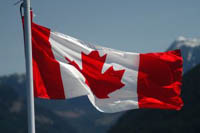Canada has always performed well in measures of wellbeing such as healthcare, income, housing and safety. The country’s immigration policies are also relatively friendly and since many different ethnicities live alongside each other, the society has evolved into a multicultural and tolerant one. For those about to re-locate to Canada, here are 5 things you should know before moving.
Driving licenses
The tests and exams necessary for obtaining a driver’s license in other countries may not be valid in Canada. In some cases, there may have to be converted.In Canada, driving licenses are not issued by the federal government, but by the provinces. Each province may have its own rules and tests. Some countries have agreements in place with the provinces by which those who already have licenses from their home country can obtain a new one without going through the regular process. Ontario is one such province, which has an agreement with countries like Australia, the United States and France. Some countries like Ireland have an agreement with Ontario, but not with other provinces such as British Columbia.
Weather
People used to warm temperatures or a mild climate may take a while to adjust to the typically cold Canadian weather. Temperatures often drop below freezing point in most parts of the country. In the Arctic Circle, bitter winters last for as long as seven months. With the right clothing and some adjustment, most expats quickly adapt to the bitter weather. The good news is that this kind of weather does not occur throughout the year. The summer months are warmer and Canadians make the most of these pleasant days by engaging in various outdoor activities like kayaking, hiking and mountain biking. Some southern provinces witness higher humidity levels and summer temperatures that can even cross 30 degrees Celsius.
Tipping
Most Canadian workers in the food service industry receive the established minimum wage. In Canada, it is customary to tip a minimum of 15 percent at most restaurants. However, servers usually have to share a portion of their tips with co-workers. About 1 to 2 percent of a server’s total tips must go towards funds collected for kitchen staff, busboys and other workers in the restaurant. At some restaurants, servers may also have to pay a certain amount for breakages. As a result, tips are an important source of income for servers.
Education
Expats with children will be happy to know that Canada has many good schools and the standard of education is high. There is great emphasis on the transparency of the education system. While schools are funded and governed at both the federal level and provincial and territorial level, it is the provinces and territories that make the policies. The education system is similar across the region, but there may be some variations in curriculum and evaluation methods. Canadian schools use English as the language of instructions in all provinces, except for Quebec where French is used. Most Canadians make use of the free public education system, but there are also many good private schools in the country. Man Expats prefer to send their children to international schools where the curriculum and language matches with that of their home country. Private and international schools tend to be more expensive.
Healthcare
The Canadian healthcare system is called Medicare and it guarantees universal and accessible medical care to all citizens and individuals with permanent residency. The system runs on public taxes and while there are private doctors and hospitals, they bill the government for their services. The provinces and territories are responsible for the state health insurance plan for that particular region. The health coverage is comprehensive and only dental treatments, optometry, outpatient prescription drugs and ambulance services are not covered. Almost all physical services and important health services like acute hospital care are taken care under Medicare. Locals and expats are able to receive high quality treatment. Although there is much debate about the feasibility of such a system, Canadian healthcare remains one of the main advantages of living in Canada. However expats should be prepared for long waiting times. Even consultations may take place only after a couple of weeks and there is waiting period for surgical procedures as well.

